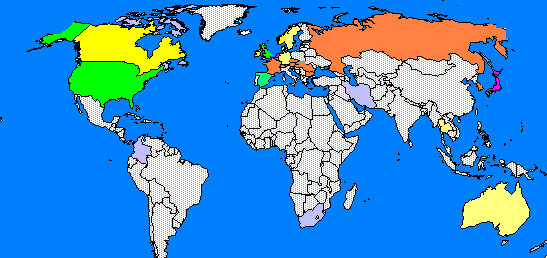|
What have been the recent developments in the dispute between India and Pakistan regarding Kashmir?
After reaching the brink of nuclear war regarding the Kashmir boundary dispute, there has been a promising momentum toward reaching a peaceful resolution. In January 2004, Indian Prime Minister Atal Behari Vajpayee and Pakistani President Pervez Musharraf agreed to embark on a process of normalizing relations between the two countries and resolving the Kashmir problem. But diplomats and analysts on both sides know that there quick-fix solutions to a dispute which has been the cause of two wars between India and Pakistan in the last 50 years.
In fact there has been very little progress and there is a fear that hostilities might resurface, particularly since there has been a change in leadership in India. This is true even for issues which have been agreed upon in principle; like the reopening of consulates in Karachi and Bombay. The Indian government wants peace talks to include all issues, not just the boundary dispute. They propose friendly exchanges, increased people to people contact and suggestions to promote trade and commercial links. But President Musharraf has remarked on more than one occasion that it is not possible to discuss trade and other subjects unless they coincide with substantive progress on the core issue of Kashmir.
Where is Kashmir?
Kashmir  (Click to see map) is a mountainous region located in the northwest corner of the Indian subcontinent. It is about the size of Kansas and is dominated by two mountain ranges, the Himalaya and Karakorums. (Click to see map) is a mountainous region located in the northwest corner of the Indian subcontinent. It is about the size of Kansas and is dominated by two mountain ranges, the Himalaya and Karakorums.
What created the conflict between India and Pakistan over Kashmir?
The problem grew out of the breakup of the English empire in India in 1947 after World War 2. Despite the wishes of Mahatma Gandhi, two separate countries were created primarily for religious reasons: India and Pakistan. Pakistan was actually two entirely separate territories on either side of India.  In reality, many of the remote areas of the subcontinent such as Kashmir were feudal and had little connection to a national government. These areas were ruled by monarchs known as Maharajas. India was predominantly Hindu, Pakistan was mostly Muslim. At the time of the creation of India and Pakistan the status of Kashmir (a predominantly Muslim area) was left uncertain. Two months after the countries were created, an arrangement was made between the national government in India and the Maharaja of Kashmir which gave control to India. War immediately erupted between India and Pakistan. After a U.N.-arranged ceasefire in July 1949, Pakistan gained one third of Kashmir territory. The remaining territory was to be under India's control but to have a status of near independence. Despite this arrangement, India formally annexed Kashmir as a state in 1956 which provoked rioting among the Muslim population. War has resumed briefly in the region in 1965 and as part of the 1971 war between India and Pakistan over the independence of Bangladesh (formerly East Pakistan). In reality, many of the remote areas of the subcontinent such as Kashmir were feudal and had little connection to a national government. These areas were ruled by monarchs known as Maharajas. India was predominantly Hindu, Pakistan was mostly Muslim. At the time of the creation of India and Pakistan the status of Kashmir (a predominantly Muslim area) was left uncertain. Two months after the countries were created, an arrangement was made between the national government in India and the Maharaja of Kashmir which gave control to India. War immediately erupted between India and Pakistan. After a U.N.-arranged ceasefire in July 1949, Pakistan gained one third of Kashmir territory. The remaining territory was to be under India's control but to have a status of near independence. Despite this arrangement, India formally annexed Kashmir as a state in 1956 which provoked rioting among the Muslim population. War has resumed briefly in the region in 1965 and as part of the 1971 war between India and Pakistan over the independence of Bangladesh (formerly East Pakistan).
The Kashmir controversy is a major reason for the present conflict between India and Pakistan. The stakes have been raised because both countries are not parties to the nuclear non-proliferation agreement and have developed a nuclear arsenals. (See Arms Control Summary)
How is the Kashmir situation affected by the current war in Afghanistan?
The Kashmir area is adjacent to Afghanistan and the agitation for Kashmir independence is sponsored primarily by fundamentalist Muslims in Pakistan and in Kashmir itself. Much of Al-Queda's terrorist activity has occurred in Kashmir. Because Pakistan claims all of Kashmir territory, it has covertly supported this activity. Moreover, the U.S. war against the Taliban has been regarded as a "Jihad" or holy war by Muslim fundamentalists and thus has exacerbated this already tense border dispute. The existence of a terrorist network in the region has provided a possible escape path for Al Queda activists in Afghanistan including Bin Laden.
Kashmir Links
Kashmir information network
Kashmir Online
Kashmir Times
United Nations Military Observer Group In India And Pakistan
KashmirNet
|

